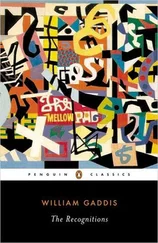“You had to be there” as they say & as your Village scene illustrates the danger of having not: the under current of the drug ambience, Stanley Gould, Anton Rosenberg (dead a few weeks ago), Eddie Shu the heavy drug connexion, hardly the ‘rival’ you imply. No, no, you had to be there, hardly ‘indifference’ but life & book were Sheri being celebrated, that winter of ’47 I was perhaps unwisely contemplating some sort of permanent arrangement at her decision, instead a telegram among my papers signaling her nonappearance with ‘sister Judith is in town’ & I left that night for Panama, to Spain as you note the year following. No, those were youthful grand and often wild times. You had to be there. […]

Ginsberg […] dropped: the poet had died the previous year.
‘revenge fantasy’: in R, WG kills off Esme, the character based on Martinelli.
Anton Rosenberg: Village hipster, painter, and jazz musician (1926–98), called “Julien Alexander” in the same Kerouac novel in which WG appears ( The Subterraneans ).
Eddie Shu: jazz musician (1918–86) and Martinelli’s drug dealer; he appears in R as Chaby Sinisterra (called Gism in early drafts).

To Gregory and Judith Comnes
[ After WG decided to convert AA from a nonfiction study to a novella, he received a commission from Deutschland Radio to write a play for broadcasting, so he sent them the penultimate draft of AA as a one-act monologue entitled Torschlusspanik (which means the fear of doors closing, of opportunities lost). It was translated by Marcus Ingendaay and broadcast under Klaus Buhlert’s direction on 3 March 1999, three and a half months after WG died. The book version of AA contains the Pulitzer diatribe mentioned below (60–62), the cover letter which accompanied a copy of the play. ]
East Hampton, NY 11937
1 Sept. 98
dear friends,
I could & might as well have sent this off a while ago but had hoped to get in a diatribe on Pulitzer (done but not the right pace) but more important this is as you will see a sort of compleat in itself, ie with a beginning middle & end, & since it now cast as the opening of the (book) the carryover from this to the continuation both character(s?)wise & features, the youth & mentor the history as lie (gossip) the &c&c&c is proving difficult so run through this if you wish for the time being,
WG

[ WG finished AA just as he was hospitalized in Southampton for a variety of ills. He died on the morning of December 16th, two weeks before what would have been his 76th birthday. A memorial tribute was held on 6 May 1999 at the American Academy of Arts and Letters in New York City, at which Sarah Gaddis, Louis Auchincloss, William H. Gass, Joy Williams, Julian Schnabel, and D. A. Pennebaker spoke. The proceedings were published in Conjunctions 33 (Fall 1999): 149–60. Agapē Agape and WG’s collected essays, The Rush for Second Place , were published in October 2002. Since then, new translations of his work continue to appear— J R in Chinese and Italian, AA in German, French, Spanish, and Italian — and a few of the stories WG wrote in the 1940s have been published in periodicals. When the first two novels came up for copyright reversion, the Gaddis Estate chose to move the books to Dalkey Archive, who enthusiastically offered a plan to reissue each title along with a new volume of Gaddis’s selected letters. ]
It is a long journey to read a volume of letters, and so it has been for me with this one, a selection of my father’s correspondence that reveals his life in high times and low, sometimes in painful magnification.
Long before I knew his work, I knew my father’s writing through his letters — a use of language that involved control and precision and striking passages of beauty, whether observing the natural world or describing loss or how it is to grow up. And now that I have read the whole collection, I see that this beauty is present even when — perhaps especially when — he is angry, or feels abandoned or betrayed, and is wounded.
Included in the collection are thirty or so letters out of some three hundred that he wrote to me. He frequently addressed envelopes in his unique calligraphic hand, and these were startling to receive when I was growing up, almost medieval looking, a work of art; the result of time he spent convalescing from an illness in adolescence. His letters were handwritten or else he used a manual typewriter. I never received an e-mail from him, and don’t imagine he ever wrote one.
He wrote to me as early as 1964, while traveling; but his regular letters began after my parents divorced and my mother remarried and we moved to Massachusetts. Although they were to be a stabilizing force in my life, they were not easy for me to read and absorb early on. Rich in emotion and description, with an emphasis on values and the importance of being out in the world, the letters were serious in nature, difficult for a twelve-year-old girl growing up in another household. Their very existence underscored the fact of our living apart, and often I felt his anger at this, his frustration and helplessness, as much I did his devotion and concern and wisdom. He himself grew up without a father present in his life, and in one letter, he described his wistfulness taking the train back and forth to a small Connecticut boarding school when he was a young child. From this I knew how deeply it affected him to put my brother and me on a train after a weekend visit with him. He could have simply told me how he felt, but that would have been handing a child the burden of a parent’s loneliness. So instead he wrote about his boyhood experience of loneliness.
I knew his loneliness perhaps because I knew him through his letters; when he was low, he wrote about it. He drove convertibles after my mother left him: a navy blue Pontiac with a white top, a burgundy Chevy with a white top, a bronze Ford XL with a black top. Years later, he told me that owning those cars was a way for him to feel a bit of flash and dash to keep himself together and to make us think he was together, even as he was plagued with money worries, running out of advances while working on J R , taking jobs writing corporate speeches to pay tuitions, mortgages, child support.
During these years, he picked us up every other Friday at the train or bus station in New Haven or Stamford, Connecticut, and drove us back to Croton, later Piermont. After a weekend of cribbage and Perry Mason , perhaps a movie, and going over homework, he drove us back to the train on Sunday. Then he followed up on our visit with a letter — or else wrote a furious letter like the one he wrote to Jovanovich, his publisher, in April, 1970, which is staccato in intensity even with its run-on sentences.
J R took my father twenty years to write — my childhood and adolescence. I particularly remember the summers, when he loaded cartons of the manuscript into the car, and we drove to Bay Shore and boarded the ferry to Saltaire, Fire Island. He managed to hold onto that house for over fifteen years, rebuilding it when it was condemned following a severe storm in the sixties that brought it down off its pilings.
In person, my father was quiet, deliberate, with a dry sense of humor. He was thoughtful, gentle. He listened. He encouraged me to write. He planned ahead and was rarely impulsive. Yet he could be impatient and short-tempered. He was a driven man, intense in what he demanded and what he gave. He eschewed sentimentality, yet he quoted from Thornton Wilder’s Our Town, telling me to live “every, every minute.” In terms of the world, he wanted to belong, yet stubbornly remained an outsider. Even in good times, he had that cautionary sense of “waiting for the other shoe to drop,” using that expression.
Читать дальше














